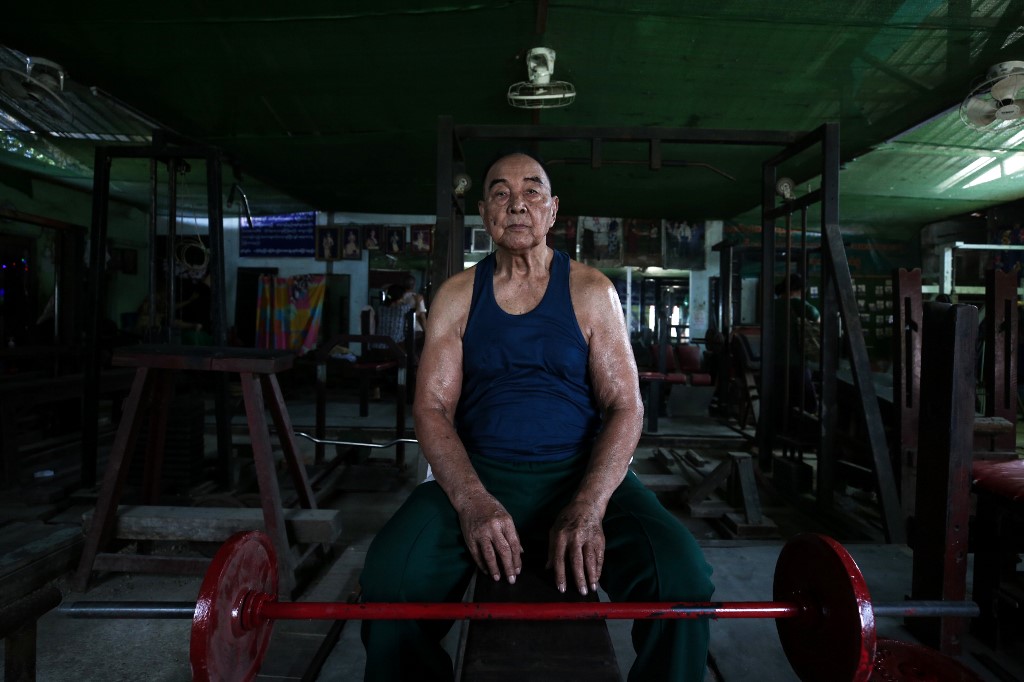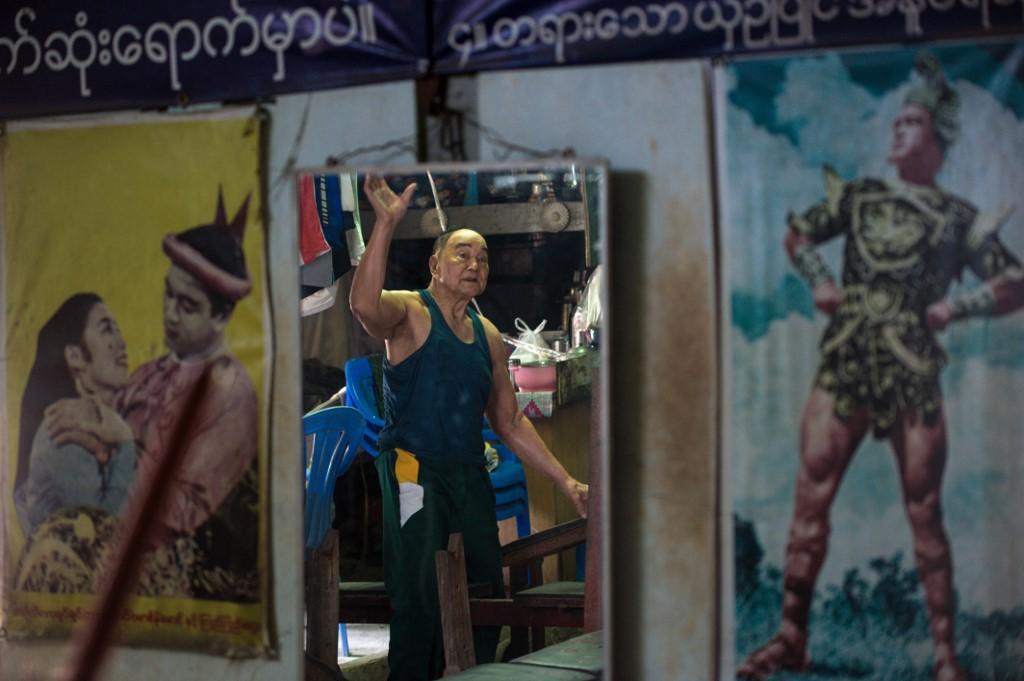
Flexing his oiled, bulging biceps and pecs, 91-year-old one-time bodybuilding champion Sein Maung admires himself in the mirror before starting to pump iron in his Yangon gym.
The barrel-chested nonagenarian's career has spanned some 70 years, both pre-dating and outlasting the country's half-century of junta rule.
But he describes the late 1950s as his heyday, when he bagged a medal at the 1958 Burmese "Mr Olympic" contest before being crowned "Mr Burma" a year later.
"All of my brothers died in their 70s, but I'm still here," he tells AFP proudly, putting his hearty longevity down to a disciplined lifestyle based around religion, diet and exercise.
Buddhist prayers begin each workout before he greases up and starts gruelling sets of chest presses, deadlifts and bicep curls.
Myanmar has a robust bodybuilding culture, and competitions held at malls often draw enthusiastic crowds to cheer on sculpted men in speedos—an incongruous sight in the socially conservative country.
Before he even knew it was a bona fide sport, Sein Maung says as a teenager he would hulk heavy blocks of wood around his small village in rural Ayeyarwaddy region.
A bodybuilding show he saw as a young soldier in 1950 proved to be an epiphany, and there has been no looking back.
With his career skyrocketing in the 1960s, he even starred in two movies and became bodybuilding coach for Miss Burma beauty pageant contestants.
Meanwhile in 1962—the same year the military took over in a coup—he set up a gym that still runs today.
Once there used to be around 200 members, he says somewhat wistfully, but now only a handful remain, mostly women also in their later years.
He admits his fiery temperament might be to blame for his fitness centre's dwindling popularity.
"I get so angry and tell people to get out if they don't take bodybuilding seriously. I can't control my temper."
Like most in the city, the gym currently lies shuttered due to coronavirus fears.
Yet Sein Maung says he is continuing with his prayers, protein-based diet and strict fitness regime at home to keep his immune system as strong as possible.
He shrugs off concerns about the virus.
"I know it's mostly elderly people who are dying. But I'm not worried just because I'm in my 90s. I'm not afraid to die."


